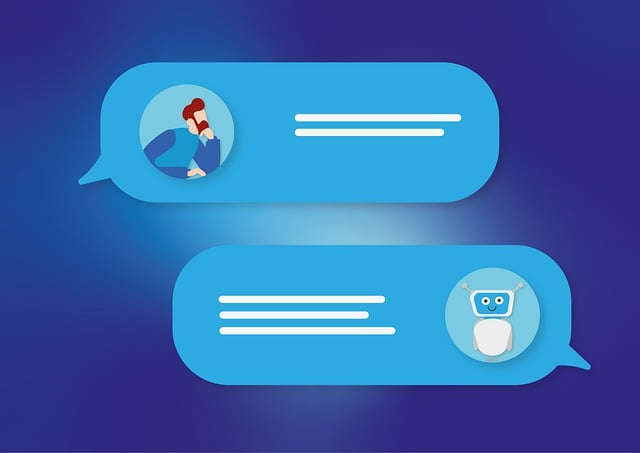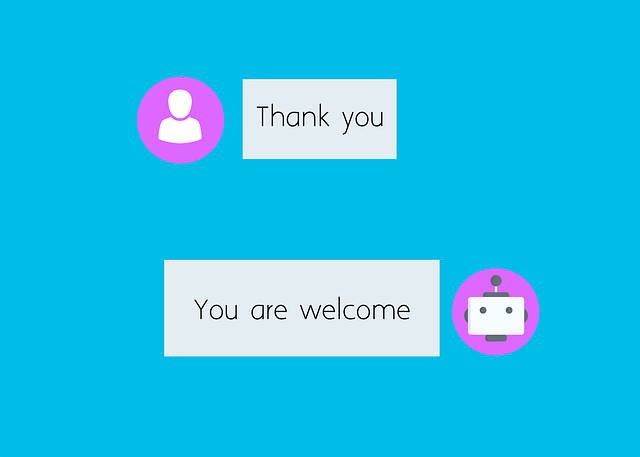AI chatbots have revolutionized information delivery with advanced natural language processing but lack human empathy and ethical intuition. Their decision-making is constrained by programming, making them valuable assistants but not replacements for human judgment in complex scenarios requiring nuanced understanding of human values, cultural contexts, and social implications. AI chatbots can enhance human judgment by analyzing vast data and offering unbiased suggestions, but they are susceptible to biases and errors. To ensure ethical integration into daily life, transparency about capabilities and limitations, as well as accountability mechanisms for addressing unethical outcomes, are crucial.
In today’s world, AI chatbots are increasingly involved in ethical decision-making processes. This article delves into the multifaceted role of artificial intelligence assistants, exploring their capabilities and limitations in navigating complex moral dilemmas. We examine how these tools can provide unbiased information, enhance human judgment, and promote fairness.
Additionally, we address critical challenges such as potential biases and errors, emphasizing the importance of transparency and accountability to ensure ethical AI chatbot practices.
- Understanding AI Chatbot Capabilities and Limitations in Ethical Decision-Making
- The Role of AI Assistants in Providing Objective and Unbiased Information
- Enhancing Human Judgment: How AI Can Support Ethical Decision Making
- Navigating Potential Biases and Errors: Ensuring Fairness with AI Chatbots
- The Importance of Transparency and Accountability in AI Assistant Ethics
Understanding AI Chatbot Capabilities and Limitations in Ethical Decision-Making

AI chatbots have revolutionized how we interact with technology, offering unprecedented natural language processing capabilities. However, it’s crucial to recognize their limitations when it comes to ethical decision-making. These systems are trained on vast datasets and use sophisticated algorithms to generate responses, but they lack human empathy, moral intuition, and the ability to understand nuanced ethical dilemmas. AI chatbots can provide valuable insights and information, offering a range of perspectives to consider, but they should not be relied upon as sole decision-makers due to their inherent programming constraints.
In many cases, ethical decisions require a deep understanding of human values, cultural contexts, and complex social implications—areas where AI chatbots currently fall short. They may struggle with interpreting subjective or emotionally charged language, ensuring cultural sensitivity, or accounting for unforeseen consequences. Therefore, while AI chatbots can be powerful tools to enhance decision-making processes, humans remain indispensable in overseeing and making the final call on ethical matters.
The Role of AI Assistants in Providing Objective and Unbiased Information

AI chatbots are designed to provide objective and unbiased information, playing a pivotal role in ethical decision-making processes. Unlike human beings, who can be influenced by personal biases, emotions, and experiences, AI assistants draw data from vast knowledge bases to deliver impartial insights. This capability is particularly valuable in complex scenarios where emotional involvement could cloud judgment, such as legal advice or medical diagnoses.
By ensuring that information is based solely on available facts and statistical analysis, AI chatbots help users make more informed decisions. They provide a reliable source of guidance, especially when dealing with sensitive topics that require impartiality and objectivity. As these assistants continue to evolve, their role in facilitating ethical decision-making will become increasingly critical in various sectors, including healthcare, finance, and legal professions.
Enhancing Human Judgment: How AI Can Support Ethical Decision Making

AI chatbots have the potential to significantly enhance human judgment in ethical decision-making processes. They can provide valuable insights and perspectives by analyzing vast amounts of data and offering well-reasoned suggestions. These tools are designed to support, not replace, human expertise, ensuring that critical decisions are informed by both advanced analytics and ethical considerations.
By leveraging machine learning algorithms, AI chatbots can identify complex patterns and correlations that might be overlooked by humans. They can also help in maintaining a consistent and unbiased approach by applying predefined ethical frameworks and guidelines. This support system enables individuals to navigate intricate ethical dilemmas with greater confidence, ensuring their decisions are fair, transparent, and aligned with societal values.
Navigating Potential Biases and Errors: Ensuring Fairness with AI Chatbots

AI chatbots, despite their advanced capabilities, are not immune to potential biases and errors that can creep into their training data or algorithms. These flaws can inadvertently lead to unfair or discriminatory outcomes, especially when interacting with diverse user populations. For instance, if an AI chatbot is trained on a dataset that contains historical biases or skewed information, it may reflect and perpetuate these prejudices in its responses. This is particularly concerning when such chatbots are deployed in sensitive areas like hiring processes, loan applications, or criminal justice systems.
To ensure fairness, developers must employ robust methods to identify and mitigate biases during the training phase. Regular audits of data sources and algorithms can help pinpoint problem areas. Additionally, diverse teams should be involved in testing and refining the chatbot’s responses to catch and correct any biased or inaccurate outputs. Continuous monitoring and user feedback mechanisms also play a crucial role in keeping these AI assistants accountable and responsible for their decisions.
The Importance of Transparency and Accountability in AI Assistant Ethics

In the realm of AI chatbot development and deployment, transparency and accountability are paramount when addressing ethical considerations. As these assistants become increasingly integrated into daily life, ensuring their decisions and actions are understandable and justifiable is crucial. Users must be able to trust that the AI chatbot operates within predefined ethical boundaries, especially when handling sensitive information or making critical choices on their behalf.
Transparency involves clear communication about the chatbot’s capabilities, limitations, and decision-making processes. Developers and users alike should have access to documentation detailing how the AI arrives at its conclusions, what data it relies upon, and any potential biases or errors that may be present. Accountability, on the other hand, requires mechanisms to address and rectify any unethical outcomes stemming from the chatbot’s actions, ensuring a responsible and continuous improvement process in AI assistant ethics.






